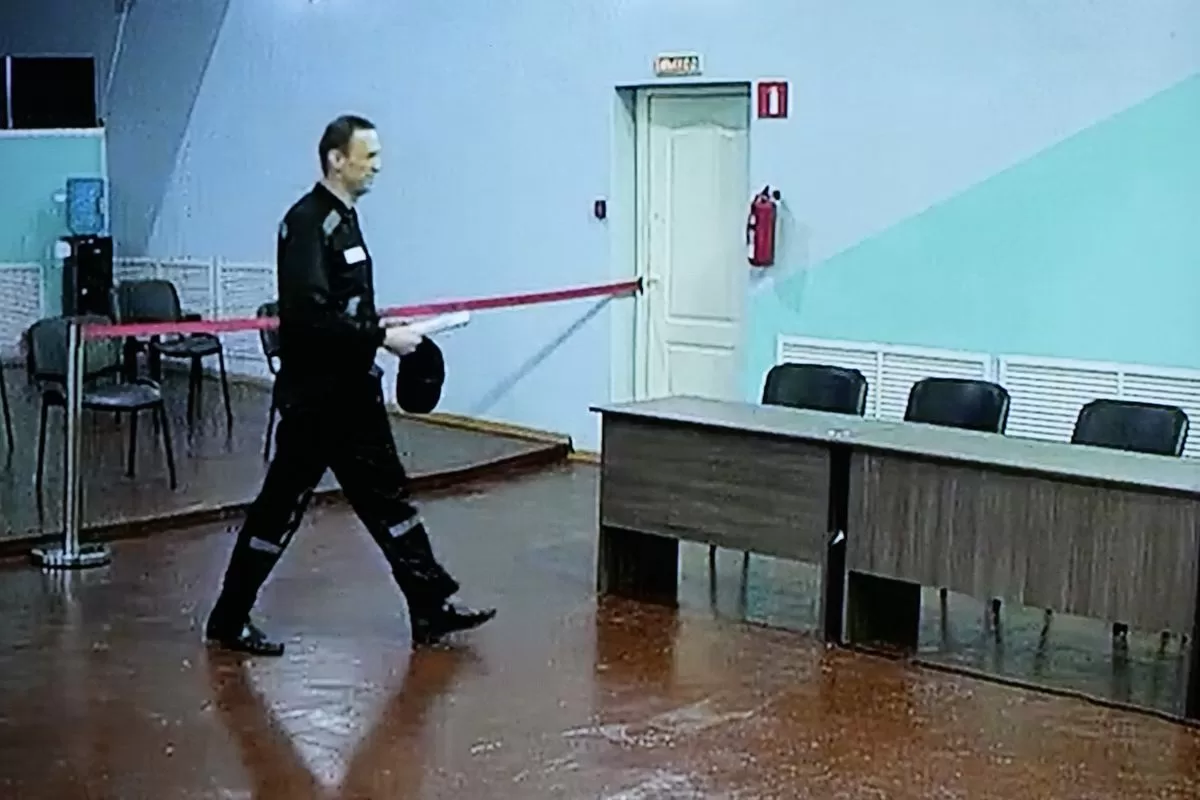Russian opposition leader Alexei Navalni, 47, has been sentenced to 19 more years in prison by a court that accuses him of “supporting extremism”. The ruling extends the 9-year prison sentence that he is already serving for alleged fraud and enriching himself with donations made to his anti-corruption platform. The opponent’s defense, as well as his supporters, affirm that the case has been fabricated to keep Navalni away from the political sphere for an even longer period of time. In addition, the political movement’s declaration of him as an “extremist” has intensified his political isolation.
The judicial process has been carried out in the court of the penal colony IK-6, in Melejovo, about 240 kilometers from Moscow, where Navalni is serving his current sentence. During this Friday’s hearing, he was convicted of six criminal charges, including incitement and financing of extremist activities, as well as the creation of an organization with extremist tendencies, in reference to his political formation. In fact, the charges filed are related to his role in the political movement he led, now extinct in Russia. The authorities allege that the movement sought to foment a revolution by trying to destabilize the socio-political situation in Russia.
Navalni’s odyssey began when his corruption investigations pointed to the Kremlin. Since then, Putin and his entourage have tightened their grip on him. The opponent’s legal team has reported that the judge adds 19 more years to his prison time due to the new charges filed. State prosecutors had requested the imposition of an additional 20 years. Navalni, in his dark criminal uniform and accompanied by his lawyers, listened to the sentence with a half smile.
In a message shared on social networks the eve of the hearing, Navalni anticipated the extension of the sentence and related it to the imposition of fear in Russian society. However, the opponent asked the public not to be intimidated by this and to reflect on the most effective ways to resist “the villains and thieves in the Kremlin.” The sentence against Navalni adds to a series of repressive measures encouraged by Moscow that have closed the siege around dissent in Russia.
The UN high commissioner for human rights, Volker Türk, has condemned the sentence of the Russian opposition leader and has called for his release in an official statement. Türk has stated that this new ruling “stokes concerns about judicial harassment and the political use of the Russian justice system.” In addition, he has highlighted that the conviction is based on vague and overly broad accusations and that it was issued after a closed-door trial. “I urge the Russian authorities to respect his obligations, put an end to the human rights violations against Navalni and release him,” the high commissioner has requested.
Join EL PAÍS to follow all the news and read without limits.
subscribe
The UN human rights officer has stressed that this sentence occurs in a context of increasing repression of freedom of expression and persecution of the political opposition in Russia. “Since February 2022, around 20,000 people have been detained in Russia for anti-war activities in Ukraine, including protests or posts on social media,” Türk said. In addition, the statement calls for an impartial and transparent review of similar cases, in line with international human rights standards.
Vladimir Putin, in power since 1999, is expected to run for another six-year presidential term in 2024. With Russia embroiled in the invasion of Ukraine, which he says is an existential battle against the West, the Russian president sees it as vital that the country stick together. In February, Putin ordered the FSB security service to step up its efforts to “identify and stop the illegal activities of those who try to divide and weaken” Russian society.
Navalni, who in the 2010s mobilized tens of thousands of people against the Putin regime, was detained in January 2021 after returning to Moscow from Germany, where he had been treated for Soviet-era nerve agent poisoning. , as determined by several Western experts.
The Kremlin, which at one point accused him of working for the CIA to undermine Russia, has denied involvement and denies pursuing Navalni. But he has portrayed him as a disturbing agent. He also downplays his role as an opponent and maintains that his case is exclusively a judicial matter. For Navalni’s supporters, the opponent is a Russian version of Nelson Mandela and that one day he will be released from prison to rule the country.
Follow all the international information on Facebook and Twitteror in our weekly newsletter.





